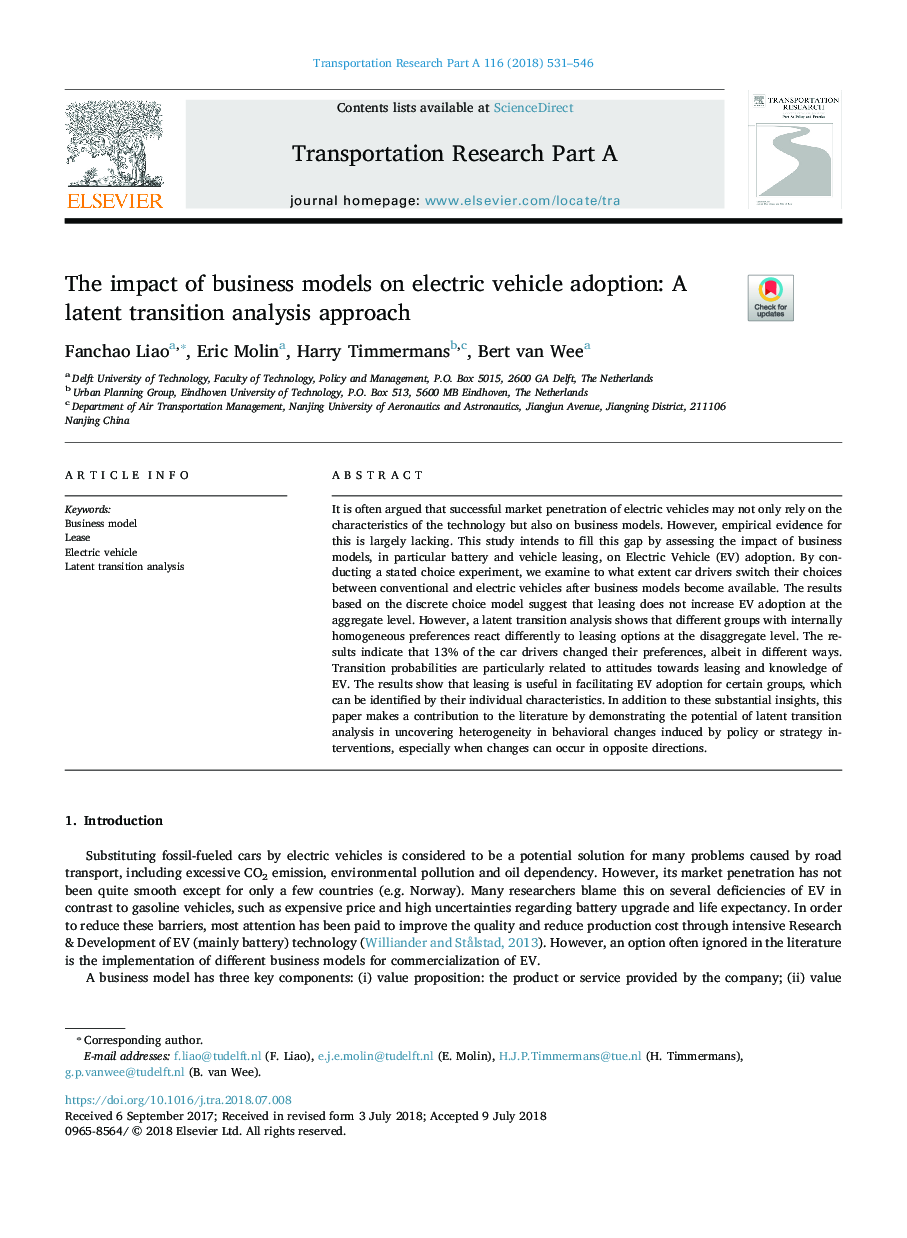| Article ID | Journal | Published Year | Pages | File Type |
|---|---|---|---|---|
| 6779822 | Transportation Research Part A: Policy and Practice | 2018 | 16 Pages |
Abstract
It is often argued that successful market penetration of electric vehicles may not only rely on the characteristics of the technology but also on business models. However, empirical evidence for this is largely lacking. This study intends to fill this gap by assessing the impact of business models, in particular battery and vehicle leasing, on Electric Vehicle (EV) adoption. By conducting a stated choice experiment, we examine to what extent car drivers switch their choices between conventional and electric vehicles after business models become available. The results based on the discrete choice model suggest that leasing does not increase EV adoption at the aggregate level. However, a latent transition analysis shows that different groups with internally homogeneous preferences react differently to leasing options at the disaggregate level. The results indicate that 13% of the car drivers changed their preferences, albeit in different ways. Transition probabilities are particularly related to attitudes towards leasing and knowledge of EV. The results show that leasing is useful in facilitating EV adoption for certain groups, which can be identified by their individual characteristics. In addition to these substantial insights, this paper makes a contribution to the literature by demonstrating the potential of latent transition analysis in uncovering heterogeneity in behavioral changes induced by policy or strategy interventions, especially when changes can occur in opposite directions.
Related Topics
Physical Sciences and Engineering
Engineering
Civil and Structural Engineering
Authors
Fanchao Liao, Eric Molin, Harry Timmermans, Bert van Wee,
